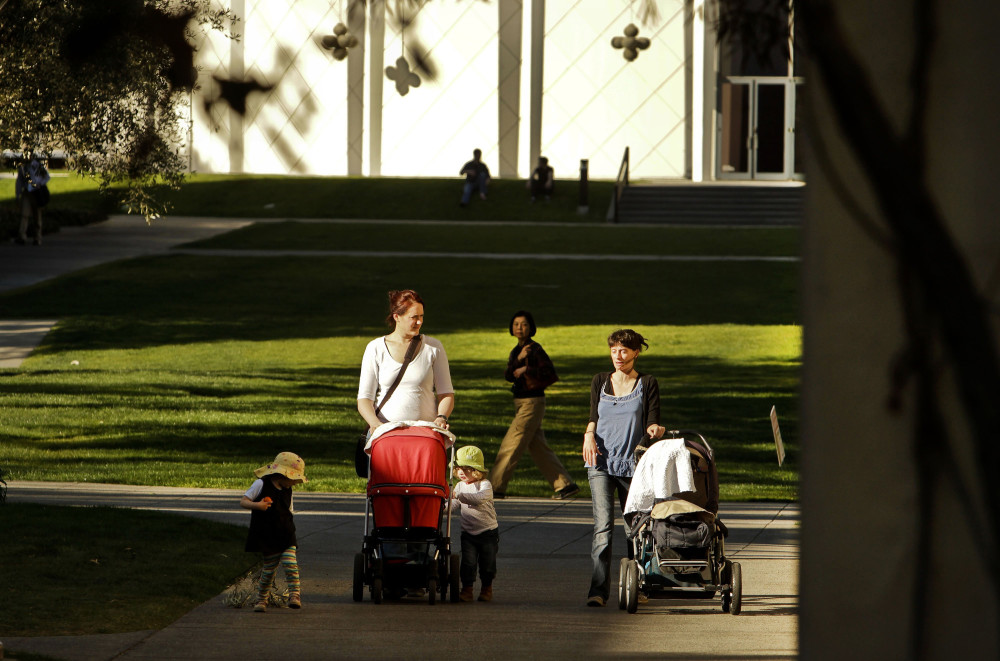OPINION
By Cynthia M. Allen
Fort Worth Star-Telegram.
A friend of mine recently decided to have her eggs frozen.
She’s single and has long been focused on what is by most accounts an enviable career.
With 40 looming large in her future, she wanted to catch a ride on the fertility train before it left the station.
She wants her career and her baby, too.
Although the circumstances of our lives are different, I’m a new mom struggling to find the perfect balance between livelihood and motherhood, both she and I were raised under the same delusion that as modern women we can have it all.
But in my own limited experience in trying to make that happen, I’m starting to believe it isn’t possible.
And I’m totally OK with that.
I was ruminating on this realization, Wednesday, when I opened my laptop to learn that it was Women’s Equality Day.
Indeed, 95 years ago this month the 19th Amendment was ratified, giving women in the U.S. the right to vote.
It was a tremendous victory, not only at the time, but for generations of women to come who would be able to participate more fully in the electoral process.
It’s quite remarkable to think that less than a century ago, women were practically elbowing their way into the voting booth.
Thanks to the tenacity of those pioneers, today more women vote in the general presidential election than men. And it’s worth mentioning that more women today graduate from college than men and those who do tend to hold higher degrees than their male counterparts.
So I was disappointed in the numerous blog posts and articles I read lamenting how women are still under-represented in state and federal legislatures and board rooms as examples of how far women still have to go to before “real equality” is achieved.
But what does equality have to do with having it all?
To be sure, trying to have it all and trying to achieve gender equality, particularly as it relates to the workplace, are not exactly the same thing, but neither are they mutually exclusive.
Most women believe that one will naturally flow from the other.
But female progress has been so tremendous it’s actually become a problem for many women, precisely because it’s fooled them into thinking having it all is not only possible but desirable.
Anne-Marie Slaughter famously wrote about this phenomenon in her widely read 2012 piece in The Atlantic.
Although her article was titled, “Why women still can’t have it all,” and she spent much of the text describing her own struggle trying to balance a high-level State Department position in the Obama administration with her household, which included two teenage sons she saw only on the weekends, she believes that with changes to the structure of the American economy and society, women will someday be able to achieve that ideal.
She lists a series of policy and social prescriptions, including innovating workplaces to incorporate family life and changing our notions of the arc of a successful career.
I admire Slaughter’s honesty and her desire to help women achieve such a lofty goal.
Still, I can’t help but feel that she and many modern women who call on government and society to provide solutions don’t realize that no policy is going to make women’s choices much easier or the outcomes much different.
As feminist scholar Christina Hoff Sommers found in a study on government policies in Sweden, generous parental leave policies are used far more frequently by women.
And as Pew Research found in a 2013 study of parents, a majority of women would largely forgo a career, preferring to work part-time or not at all.
The problem is that in the quest for equality and in pursuit of having it all, we ignore the fact that there isn’t a single definition for that virtue.
Perhaps having “less” is more.
And the best way to promote societal change is for more women to be confident in their choices.
___
ABOUT THE WRITER
Cynthia M. Allen is a columnist for the Fort Worth Star-Telegram.














































































































































































































































































































































































